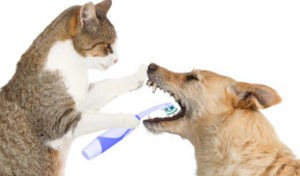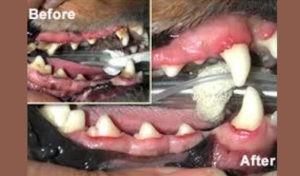 Leptospirosis is a potentially serious disease caused by the bacterium Leptospira interrogans. It affects dogs but can also infect a wide variety of domestic and wild animals as well as humans.
Leptospirosis is a potentially serious disease caused by the bacterium Leptospira interrogans. It affects dogs but can also infect a wide variety of domestic and wild animals as well as humans.
The organism is usually spread through infected urine, but contaminated water or soil, reproductive secretions, and even consumption of infected tissues can also transmit the infection. Introduction of the organism through skin wounds can also occur. Common carriers of the organism include raccoons, opossums, rodents, skunks, and dogs.
The leptospirosis organisms rapidly advance through the bloodstream leading to fever, joint pain, and general malaise. Because the organism settles in the kidneys and actually reproduces there, inflammation and even kidney failure may develop. Unfortunately, liver failure is another common sequel to infection. Kidney and liver failure both have deadly consequences.
Vaccine Characteristics
Prevention of leptospirosis via vaccination is complicated by the fact that Leptospira interrogans has more than 200 subtypes that can cause illness in animals and people. The available vaccines protect against only a handful of the most common subtypes that infect dogs, which limits their protective value. Nevertheless, the available vaccines are effective and safe when used as directed, and the vaccination is recommended for dogs at risk for exposure.
Vaccine Indications
The leptospirosis vaccine is a non-core vaccine, which means it is an optional vaccine that dogs can benefit from based on risk for exposure to the disease. Veterinarians will recommend this vaccine based on a dog’s lifestyle and reasonable exposure risk.
Vaccination Schedule
Vaccination decisions should always be made in consultation with a veterinarian so they can be tailored to meet a dog’s individual needs.
For pups, the initial vaccine is administered at 12 weeks old and repeated two to four weeks later.
For older puppies (over four months old) or adults receiving the leptospirosis vaccine for the first time, two doses two to four weeks apart are recommended.
Annual re-vaccination is recommended for dogs at sustained risk of exposure to the leptospirosis disease-causing organism.
Contraindications
Administering a vaccine is a medical procedure, and there are times when a vaccine may not be recommended. For example, your veterinarian may advise against vaccinating an animal that is currently sick, pregnant, or may not have adequate immune system functioning to respond to a vaccination. These and other issues are evaluated when deciding what is best for your dog.
Other Considerations
Exposure to leptospirosis can be reduced by preventing your dog from drinking from puddles of standing water or from swimming in lakes, streams, or other bodies of water that may be contaminated. Unfortunately, for dogs that are accustomed to an active outdoor lifestyle that includes swimming, these precautions may not be practical.
Humans can also become infected with leptospirosis, so handle dogs suspected of having the disease with care. Adhere to good hygiene techniques, such as frequent hand washing and avoiding contact with potentially contaminated urine.
This blog was written by McQueen Animal Hospital, an animal clinic (vet hospital/vet clinic) in Brampton committed to providing only the highest level of veterinary care to our beloved pets.




